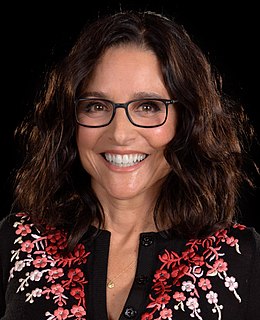A Quote by Julia Louis-Dreyfus
We are 5 percent of the global population and consume a third of the total resources - on some level we should all feel guilty relative to the world.
Related Quotes
Over the period from 1988 to 2005, the income share of the top five percent has grown by about 3.5 percent of global household income, and the shares of all the other groups have diminished. The greatest relative reduction was in the bottom quarter, which lost about one third of its share of global household income, declining from 1.155 to 0.775 percent, and now is even more marginalized.
The Hispanic population grew by 4.7 percent last year, while blacks expanded by 1.5 percent and whites by a paltry 0.3 percent. Hispanics cast 6 percent of the vote in 1990 and 12 percent in 2000. If their numbers expand at the current pace, they will be up to 18 percent in 2010 and 24 percent in 2020. With one-third of Hispanics voting Republican, they are the jump ball in American politics. As this vote goes, so goes the future.
The second reason why we haven't observed the growing gap is that our historical and social science analyses have concentrated on what has been happening within the 'middle classes' - that is, to that ten to fifteen percent of the population of the world-economy who consumed more surplus than they themselves produced. Within this sector there really has been a relatively dramatic flattening of the curve between the very top (less than one percent of the total population) and the truly 'middle' segments, or cadres (the rest of the ten to fifteen percent).
I love to tell how I'm suffering because one percent we're paying 25 percent of the total. We're not paying 25 percent of the total taxes on individuals. We're paying maybe 25 percent of the income tax, but the payroll tax is over a third of the receipts of the federal government. And they don't take that from me on capital gains. They don't take that from me on dividends. They take from the woman who comes in and takes the wastebaskets out.
The problem the world faces today is that only one-third of the world's population lives in decent circumstances, while half the population of the world lives on one or two dollars a day. And even as we have this poverty and backwardness, we are facing a global environmental crisis. We need developmental models that will take into account the specific and unique position of each country and at the same time will address the environmental crisis.



































